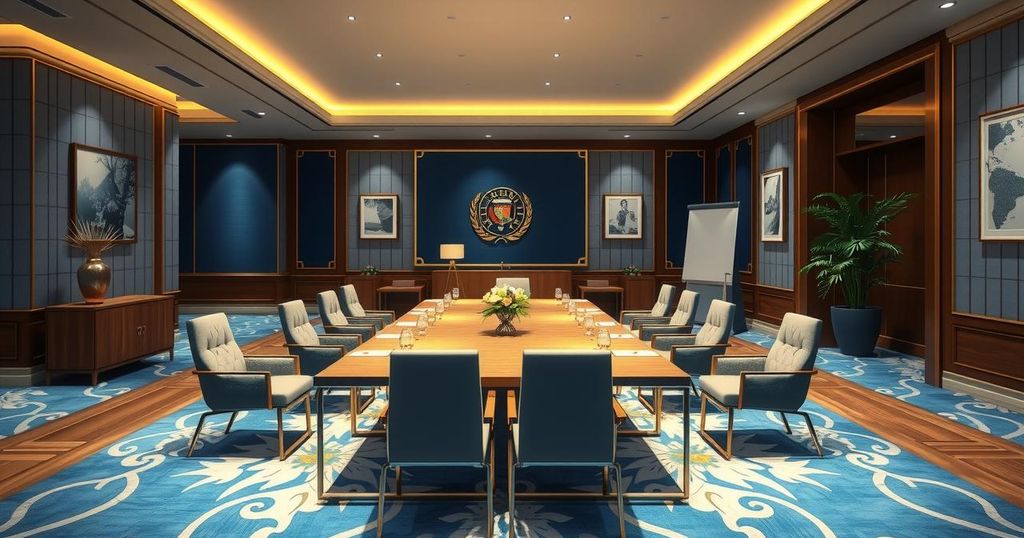Global news
ALI RASHID AL - NUAIMI, ASIA, AZOULAY, CHRONICLE, CONFLICT, COUNCIL, COUNCILS, DISPATCH, EAST JERUSALEM, ELIRAM AZOULAY, EYE, GAZA, HAMAS, HEZBOLLAH, ISRAEL, ISRAEL GANZ, JEWISH CHRONICLE, MIDDLE EAST, MIDDLE EAST CONFLICT, MILITARY OPERATIONS, MUSLIM BROTHERHOOD, PALESTINIAN AUTHORITY, REPUB, UAE, UAE NATIONAL COUNCIL, WEST BANK, YESHA COUNCIL
Isaac Bennett
0 Comments
Israeli Settler Leaders Enhance Cooperation with UAE in Historic Visit
Israeli settler leaders visited the UAE, discussing economic and diplomatic cooperation with officials. The delegation highlighted the importance of regional partnerships in strengthening settlements. Leaders expressed mutual concerns regarding groups like Hamas and the educational content of Palestinian textbooks. This visit indicates a significant shift in relations between Israel and the UAE.
A delegation of Israeli settler leaders visited the United Arab Emirates (UAE) and engaged with senior government officials to explore avenues for economic, security, and diplomatic collaboration. This meeting, reported by Israeli media, was a significant step towards enhanced partnerships between Israel and the UAE. The delegation included prominent figures such as Israel Ganz, the Yesha Council chairman, and representatives from various regional councils.
During their visit, the Israeli settler leaders participated in an Iftar dinner hosted by Dr. Ali Rashid al-Nuaimi, a senior member of the UAE National Council. Approximately 700,000 Israeli settlers reside in around 300 settlements located in the occupied West Bank and East Jerusalem, territories controlled by Israel since 1967, and the construction of these settlements is deemed illegal under international law.
Israel Ganz emphasized that the cooperation with the UAE represents a critical advancement in supporting settlement activities. He stated, “The visit to the UAE is a testimony to regional change and the need for new thinking.” He further commented on the importance of partnerships based on mutual respect and the acknowledgment of current realities.
Ganz expressed gratitude for the hospitality extended by al-Nuaimi, acknowledging the personal invitation received. Eliram Azoulay characterized the trip as a significant milestone in consolidating settlement efforts. He noted the presence of supportive leaders in the UAE, who voice similar concerns regarding adversities posed by groups such as Hamas, Hezbollah, and others.
Azoulay also highlighted discussions surrounding the Palestinian Authority’s educational framework, criticizing it for allegedly promoting animosity towards Jews. This criticism draws attention to debates regarding the content of Palestinian textbooks and their portrayal of statehood and national identity.
The recent visit of Israeli settler leaders to the UAE marks a pivotal moment in the increasing bilateral cooperation between the two entities. With discussions focused on economic, security, and diplomatic matters, the delegation’s engagements underscore a commitment to enhancing settlement activities while also addressing shared regional challenges. This interaction reflects a broader shift in Middle Eastern relations post-normalization, emphasizing the complexities surrounding settlements and the geopolitical implications of such alliances.
Original Source: www.middleeasteye.net




Post Comment